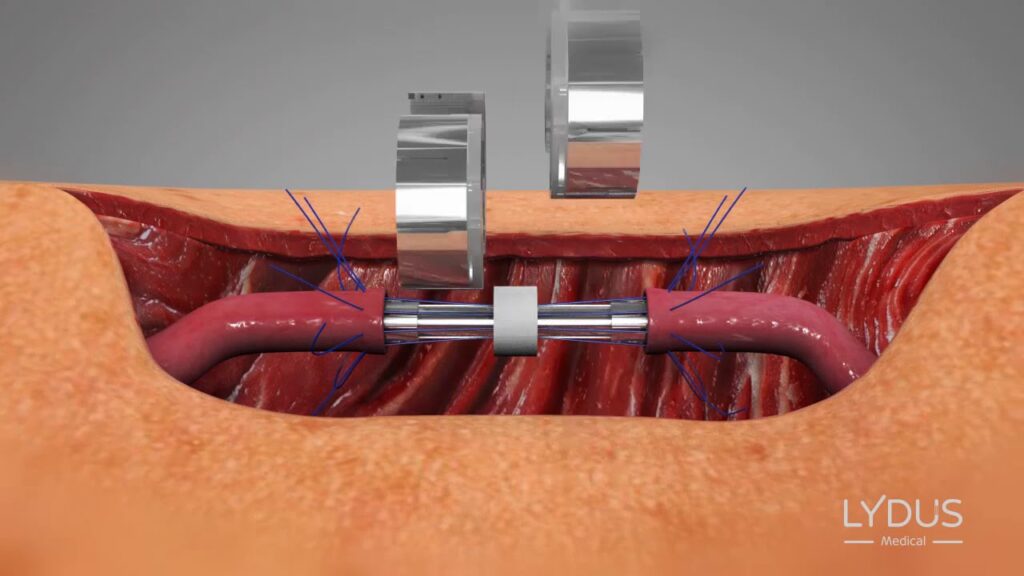Lydus Medical, an Israel-based medical technology company working to automate the complex anastomosis step of certain surgeries has raised $2.7 million in seed round funding, the company announced last month.
Led by a strategic player in the US, with the participation of several other investors in the industry, the funding will help boost product development and accelerate the US Food and Administration (FDA) clearance process.
Anastomosis is a technique used in surgery to connect two structures in the body, often blood vessels or intestines. Surgeons have long performed this difficult technique manually, requiring critical time and creating a higher probability of post-procedure complications. Lydus Medical has developed the Vesseal, which is a device that ties the disconnected vessels together, thereby standardizing the suturing process and automating anastomosis.
“Anastomosis is one of the most complicated steps of surgery, and the key to success of many procedures, and it is still performed manually, making it time and labor intense, requiring high surgeon dexterity and a very unique skill set very few surgeons worldwide possess. This reality often results in poor clinical outcomes,” said Jessica Weiss, CEO of Lydus Medical. “Lydus technology delivers standardized, accurate anastomosis, significantly improving clinical results, shortening operation time and enabling successful microsurgery procedures even when a rare, highly skilled microsurgeon isn’t available.”
Lydus Medical was founded in 2017 by Dean Ad El, head of the Department of Plastic Surgery at Rabin Medical Center; Kamall Daas, a developer and serial inventor; and Muhammad Mansour, a doctor in the Department of Plastic Surgery at Rabin Medical Center. It is a portfolio company of Sanara Ventures, itself an investment platform trying to assist the growth of promising healthcare startups.
Lydus Medical has the potential to streamline the anastomosis process in many different surgical procedures, including reconstructive surgery, organ transplantation, lymphedema, and peripheral bypass. The Vesseal works for vessels ranging from 0.5mm to 4mm wide, meaning it covers both blood and lymph vessels.
Lydus Medical “brings great innovation to the complex unmet need of surgical suturing, which includes more than 7 million surgeries a year across a variety of indications, reflecting a huge number of potential users of Lydus device,” said Assaf Barnea, CEO and chairman of Sanara Ventures.
Related posts

Israeli AI Safety Tool Among TIME’S Best Inventions For 2024

TAU Team Discovers Mechanism To Eliminate Cancerous Tumors

Ashdod Port Investing In Startups As Part Of Innovation Strategy




Facebook comments